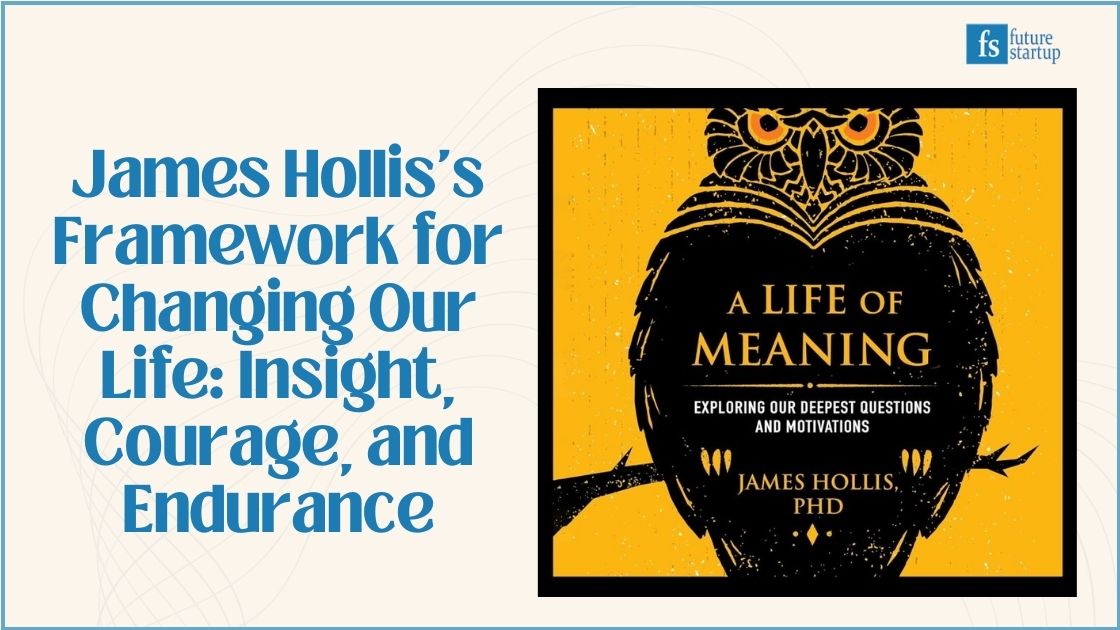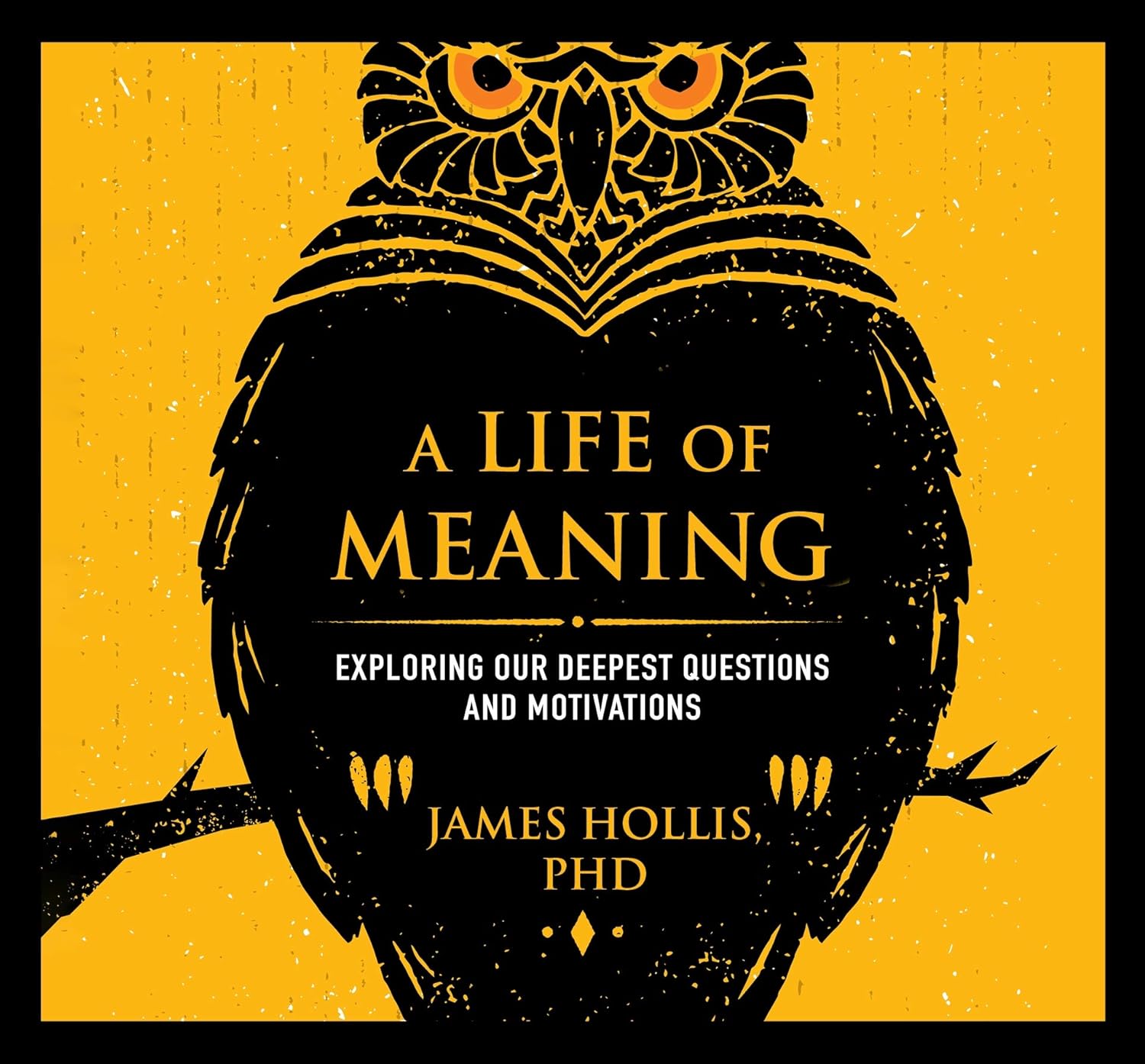
In most instances, these are the three ingredients—Insight, Courage, and Endurance—that you need to enforce a change—be it to start a business, pursue a new career path, change a habit, or change your life.
That’s not according to me, that’s according to James Hollis, one of my favorite psychology authors. Hollis, an American Jungian psychoanalyst, and author, offers the above suggestion in his excellent short book “A Life of Meaning”, which I recently finished reading.
It is a book about profound questions aimed at awakening our inner inquisitiveness about life and living— what it means to be alive and how we can live a good life.
While Hollis mostly offers questions in the book to direct our attention to important aspects of how we live, the book is also replete with timeless wisdom and observations about living fully. One of those nuggets of wisdom I found particularly helpful is this framework for change: insight, courage, and endurance.

Part of the reason I identify with this three-pronged model of change is perhaps because I have always thought in that line, if not explicitly then at least intuitively.
All change/initiative begins with knowledge. You have to know first. However, knowledge is not sufficient to make a change. Knowledge alone can’t change a condition unless we take action. That’s where courage comes in because all action demands courage. We fail to act because we fail to find the courage to act.
Finally, if we want to get anywhere with our actions, we have to be persistent with our actions. You can’t expect a change to happen just by doing something for once. You have to be willing to persevere. You have to commit for the long term, which means you need endurance—an ability to keep going to make something happen regardless of challenges and setbacks.
Hollis writes in the second to final chapter of the book:
“Many have been on this journey before us. It is so heartening to be able to learn from the written records that people have left behind how they faced the terrible dragons, faced the fears, and somehow came through. Not everybody survived, not everybody got through, but some did. They did it by willingness to risk things, to find courage.”
This is the hopeful part of the message that change is possible. A good life is possible. There is precedent for it. There were people before us who survived challenges and difficulties and managed to find their way. Hollis suggests they did so by finding the courage to risk things and to walk towards the things they wanted. The Hollis goes on to describe his framework for achieving this change or surviving this journey we call life:
“Jung once wrote what this work requires of us. In my paraphrase, he said, “First, what we call psychology can only help with one of the three tasks. Psychology can give us insight, and awareness of things, and that can be a very instrumental tool in conducting our journey.” but he said, “Then comes the quality of character of that individual. Second, he said, is courage. We can’t give courage to another person. They have to find it within themselves. Sometimes that courage comes out of desperation, but it’s there. Third, he said, is endurance, persistence, and sticking it out. Out of that comes change, out of that comes an enlarged life.”
If you pay attention, we can put this model to work in almost all areas of our lives. You can make any big or small change if you understand what you are trying to change, take action, and persevere. It is that simple.
I find the framework particularly useful for founders.
In the context of venture building, we often talk about domain knowledge as a competitive advantage, that is what insight is. You should have a certain understanding about your business that is not common knowledge.
Peter Thiel explains this the best in his excellent Zero to One where he talks about how good businesses start with a unique understanding of our world. For instance, he asserts that the next Google or Facebook will not be started by someone trying to build the next Google or Facebook, rather will be built by someone coming from a first principle thinking. His idea about escaping competition is also about operating from a unique understanding that makes competition irrelevant.
The core idea is that if you want to build a business make a change in your organization, or launch a product, the first step is usually knowledge—knowing about what you want to do. Studying your problem, idea, or market to the extent that you have a deep understanding of it.
However, as I mentioned before, knowledge alone is rarely sufficient for taking action. Take starting a business as an example. Knowing about a market is rarely enough for starting a business. Starting a business requires a willingness to take risks. It takes courage. A reason why most people don’t start. They prepare and spend a disproportionate amount of time in step one—gathering insight.
This is equally true for organizations and their strategic decisions. For instance, I have written a fair bit about innovator’s dilemmas in the past. Along with myopic strategic thinking, innovator’s dilemmas are also a failure of courage. Disrupting your own business ahead of the competition is not an easy decision. It requires an incredible amount of strategic courage and faith in one’s organizational ability to cannibalize oneself and launch into a new territory.
This is why the final leg of the framework—endurance—is critical for entrepreneurs and businesses.
When we start something, one likely outcome is failure. Often things don’t work on the first try. Many businesses fail because founders stop trying after a few failures.
Endurance is necessary because if you truly want to succeed at anything you have to be willing to keep going until you achieve your goal regardless of failures and setbacks. This is the story of almost all successful endeavors in any field.
I increasingly believe the secret to a good life lies in our ability to persistently take well-informed actions. Since life is a hard problem, if you view it from a particular perspective, we require constant learning. Useful learnings usually come from repeated actions.
But taking action is not easy.
Unless we develop courage and a willingness to endure difficulties, repeated action is usually impossible. We will either not take action at all or will give up after a while.
This is why Hollis’ framework is so powerful. It provides a concrete model for navigating the complex steps of consistently making a change and living a larger life.
I highly recommend you check out the book.
Take your business to the next level. We provide a narrative strategy and content marketing service to help brands build enduring market positions and attract attention from the right stakeholders. We also provide a market research and business consulting service to help companies understand the market, and competition, and find a way forward on critical business challenges. Get in touch if you are interested in exploring a collaboration here.
Cover photo: Photo by Josep Martins on Unsplash
Originally published on April 30, 2024. Latest updated on December 01, 2024
